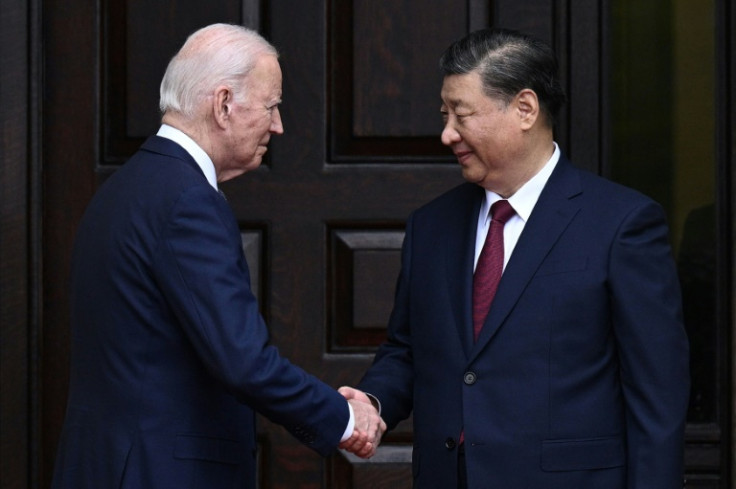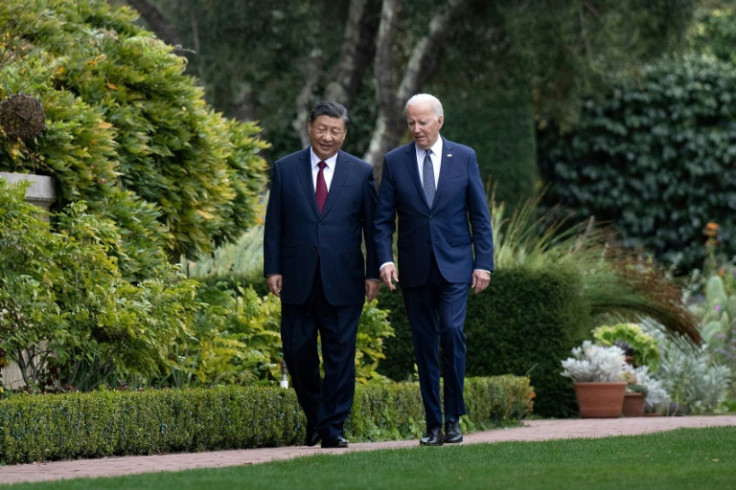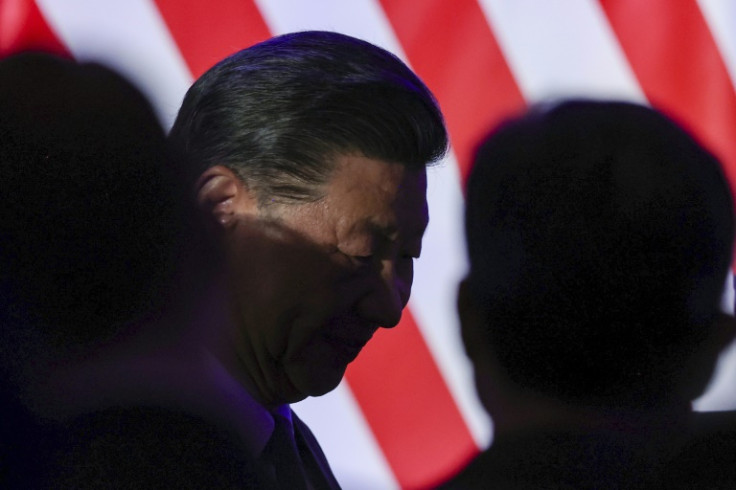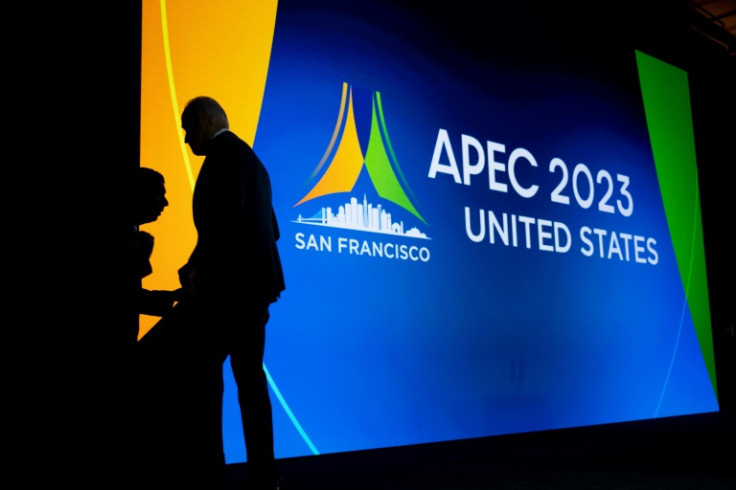Biden Hosts APEC Summit After Signaling Calmer US-China Ties

Promoting trade, protecting supply chains and fighting the climate crisis will feature at the APEC summit of Pacific rim powers opening Thursday in San Francisco after President Joe Biden and his Chinese counterpart Xi Jinping helped settle regional nerves by agreeing to dial down tensions.
The Asia-Pacific Economic Cooperation group includes 21 members but lives under the shadow of US-China relations. So the summit opened with a sense of relief after Biden and Xi held a lengthy session of their own at a sumptuous villa outside the city on Wednesday, and emerged pledging to avoid the kind of dangerous rift that could upend the world economy.
They agreed to restore military-to-military links -- vital to avoiding dangerous superpower miscommunications -- and Xi promised to crack down on production of the ingredients in China for the hugely addictive narcotic fentanyl flooding into the United States.
However, the two sides remain as far apart as ever on the issue of Taiwan, a US-backed democratic island that Beijing says is a sovereign part of China and should return under its full control.
Biden, for his part, said that despite his close relationship with Xi, he still considers the communist leader a "dictator" -- a remark that drew fire from the Chinese government.
With the main summit starting in San Francisco, focus broadened to the hugely dynamic area stretching from the coasts of Canada to Chile and across to Australia, China and Russia.
"We've got a few busy days ahead of us. The challenges before us today are unlike those faced by previous groups of APEC leaders," Biden said after his Xi meeting, mentioning artificial intelligence, climate resilience, supply chains and the role of diplomacy.
Even while insisting that the United States has no intention of "decoupling" -- cutting supply chains and effectively ending cooperation -- with China, the Biden administration is busily trying to strengthen alliances with countries in the APEC region worried about Beijing's expansionist policies.
A big plank in that platform is the Indo-Pacific Economic Framework for Prosperity (IPEF) -- a loose trade pact meant to bind together the United States and like-minded democracies such as Australia and South Korea. However, the IPEF has already hit barriers due to US domestic political opposition.
Speaking to reporters, Deputy National Security Advisor for International Economic Affairs Mike Pyle said the deal was not dead.
"President Biden will make it absolutely clear that the United States will continue to engage both diplomatically and economically in this critical region," he said. "Most trade deals take years to complete."
During their meeting Wednesday, Biden and Xi talked for several hours and strolled around a garden at the historic Filoli estate near San Francisco.
The two leaders had not met in person since they held talks in Bali in November 2022, and relations nosedived after the United States shot down an alleged Chinese spy balloon in February this year.
Biden told a press conference that his talks with Xi, whom he has known since 2011, were "some of the most constructive and productive discussions we've had."
Taiwan remains a combustible wild card in the world's most consequential relationship, with Beijing insisting it may one day need to use force to take over the island.
But Xi also hinted at a dinner that China may deploy a softer, even cuddly new weapon: pandas.
The United States will soon be without any of the popular big bears, with the last remaining individuals, currently at Zoo Atlanta, due to be sent back to China next year.
However, Xi said China was considering a new batch as "envoys of friendship between the Chinese and American people."
White House National Security Council spokesman John Kirby told reporters on Thursday that the United States would "absolutely welcome them back."



© Copyright AFP 2024. All rights reserved.





















